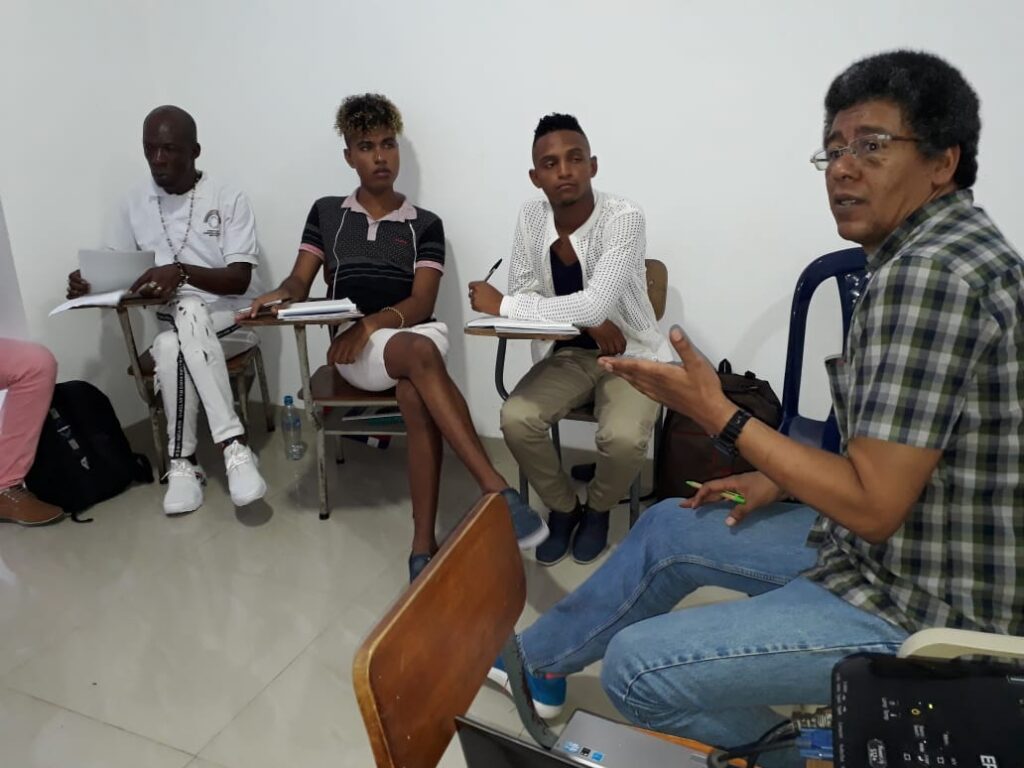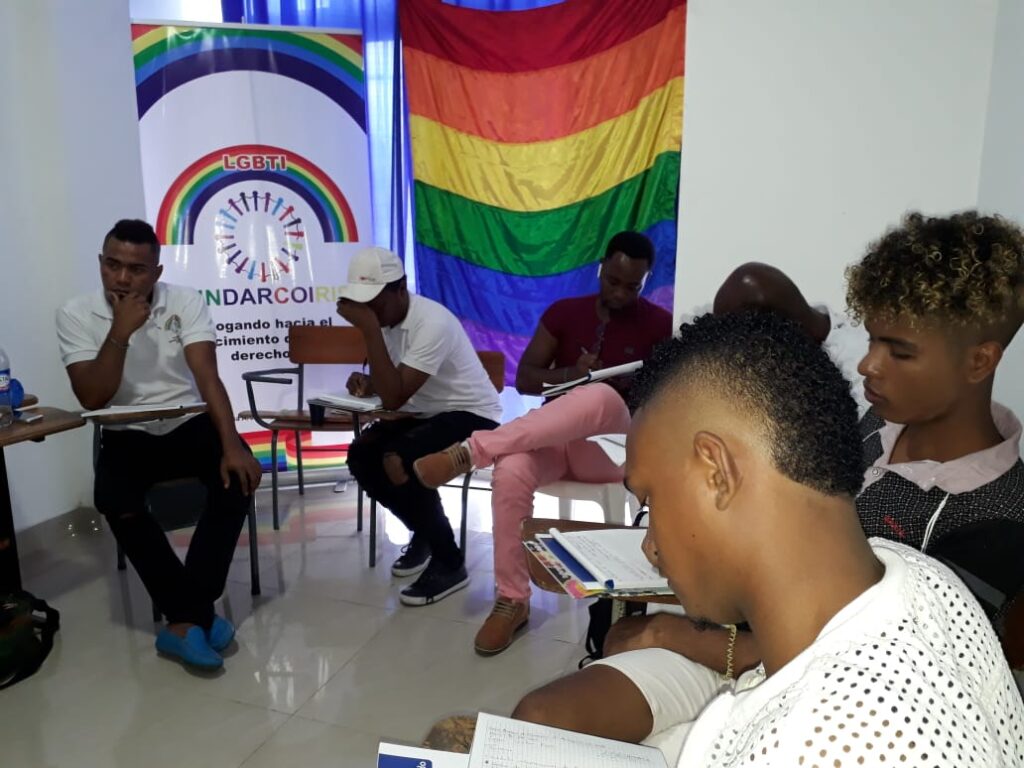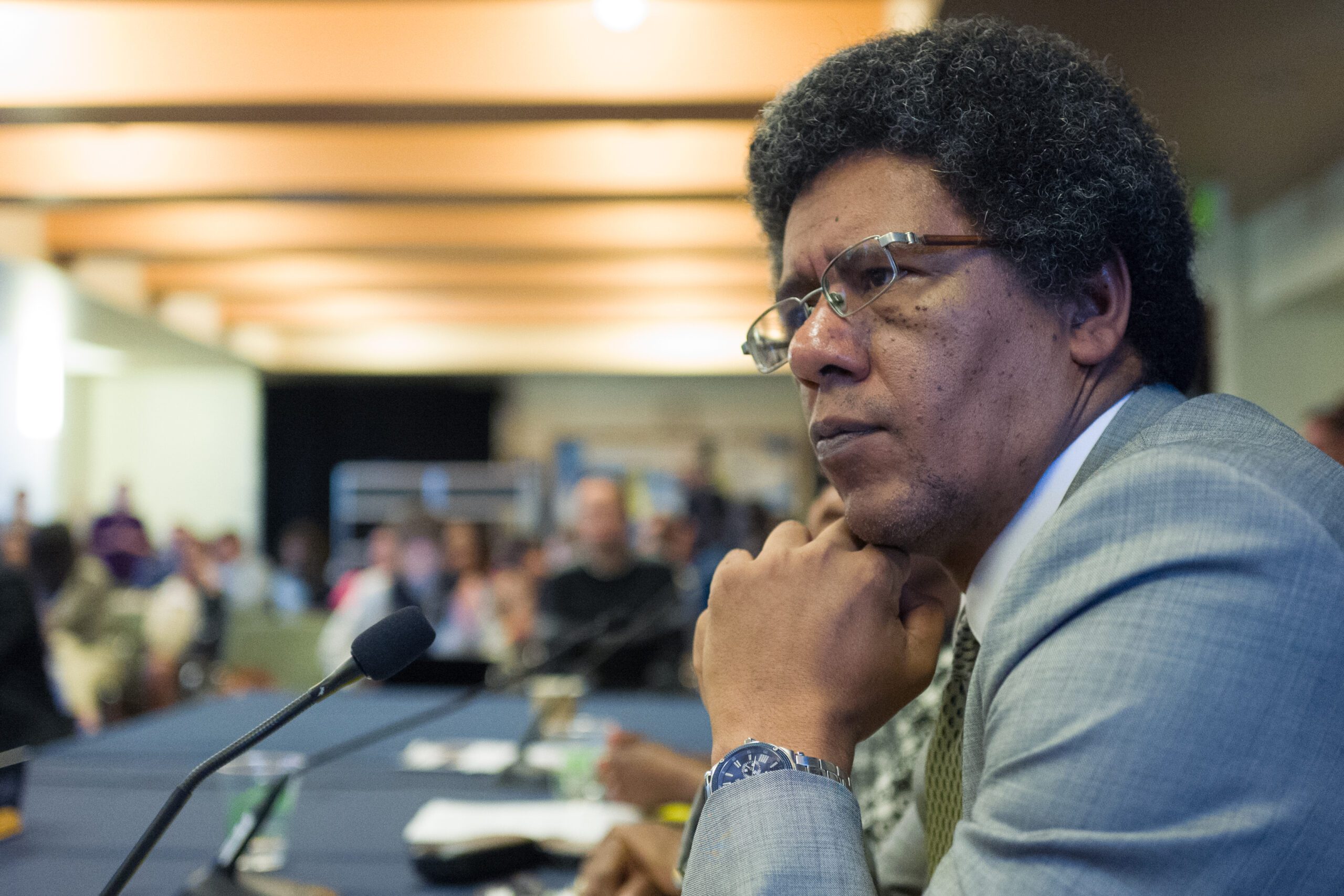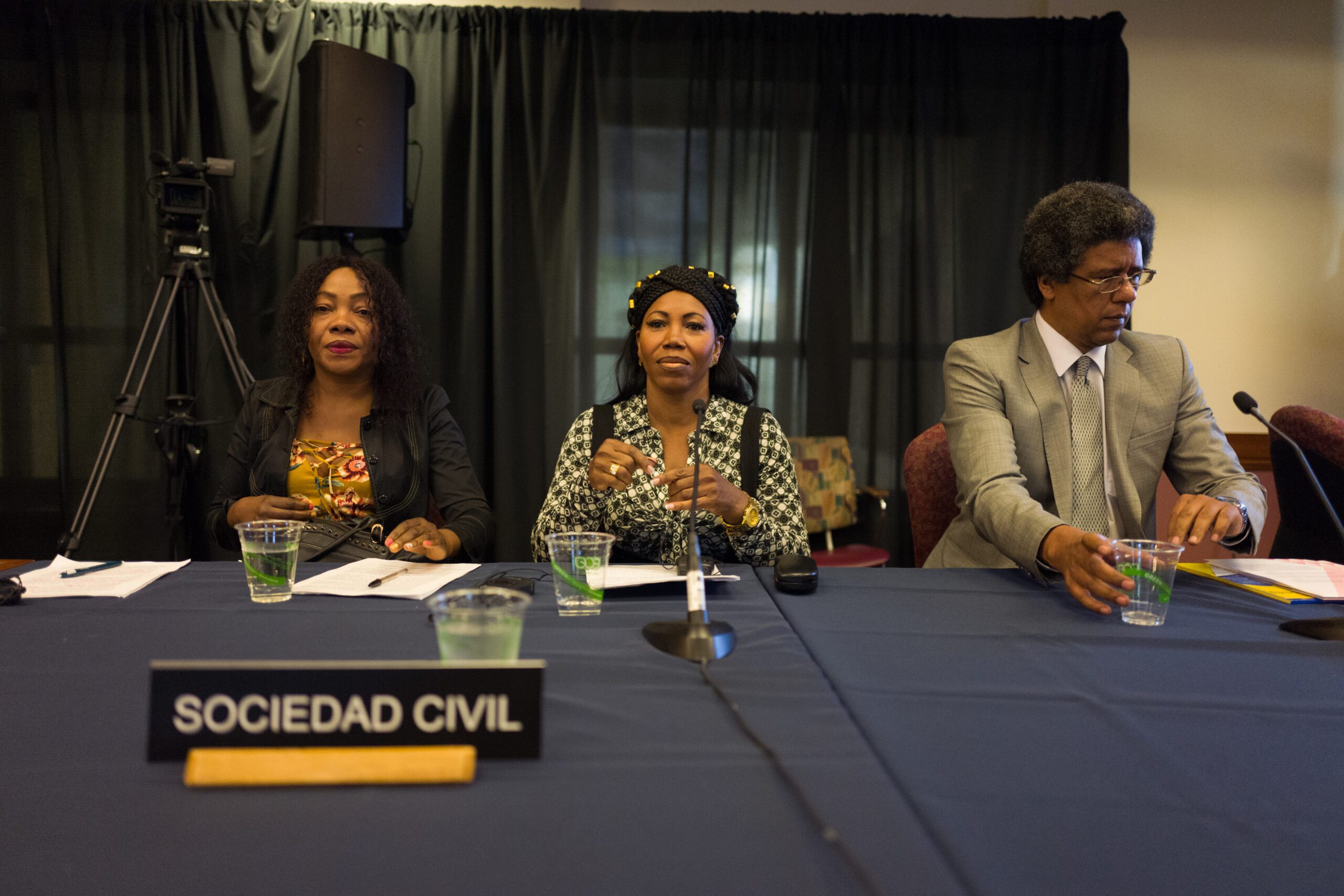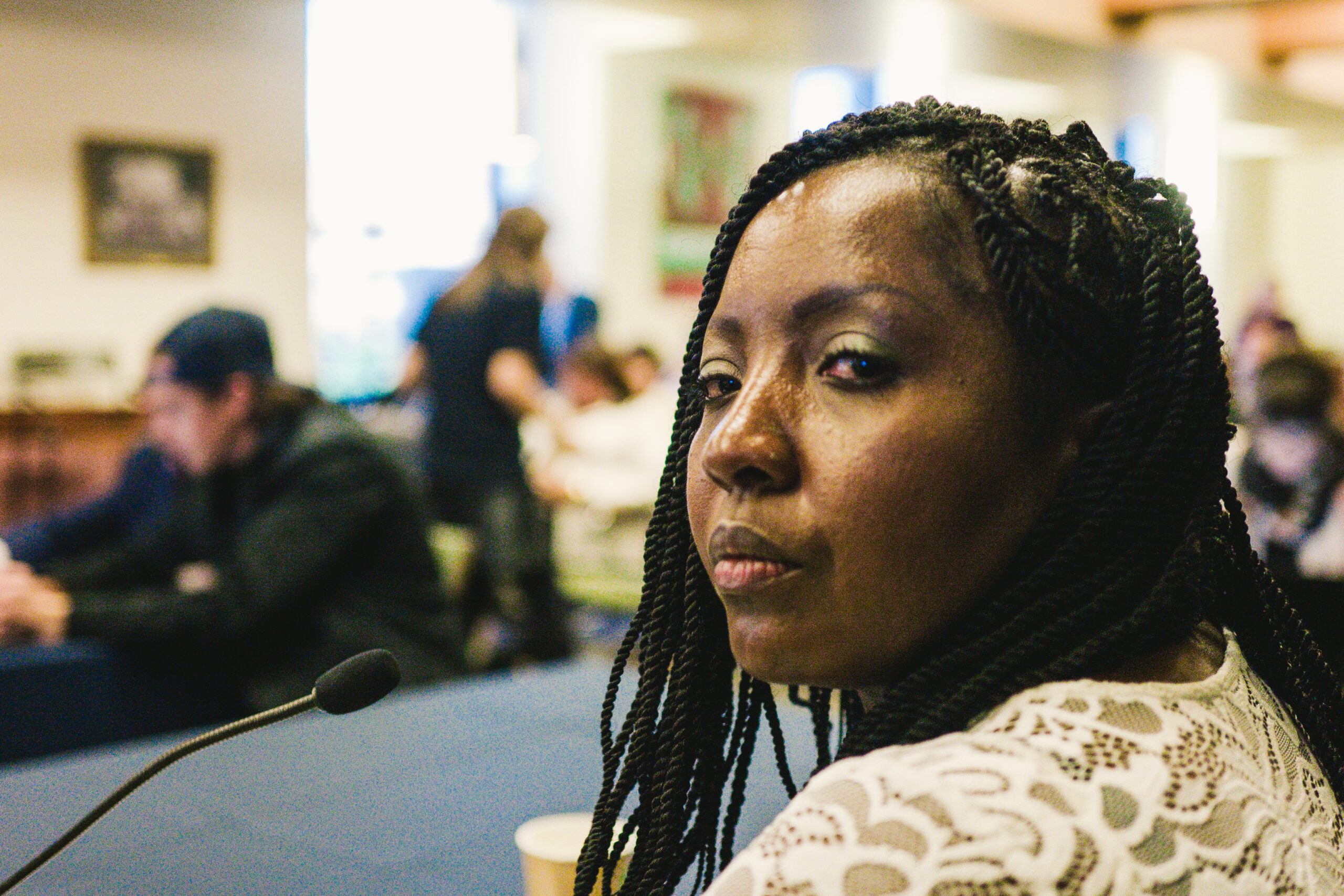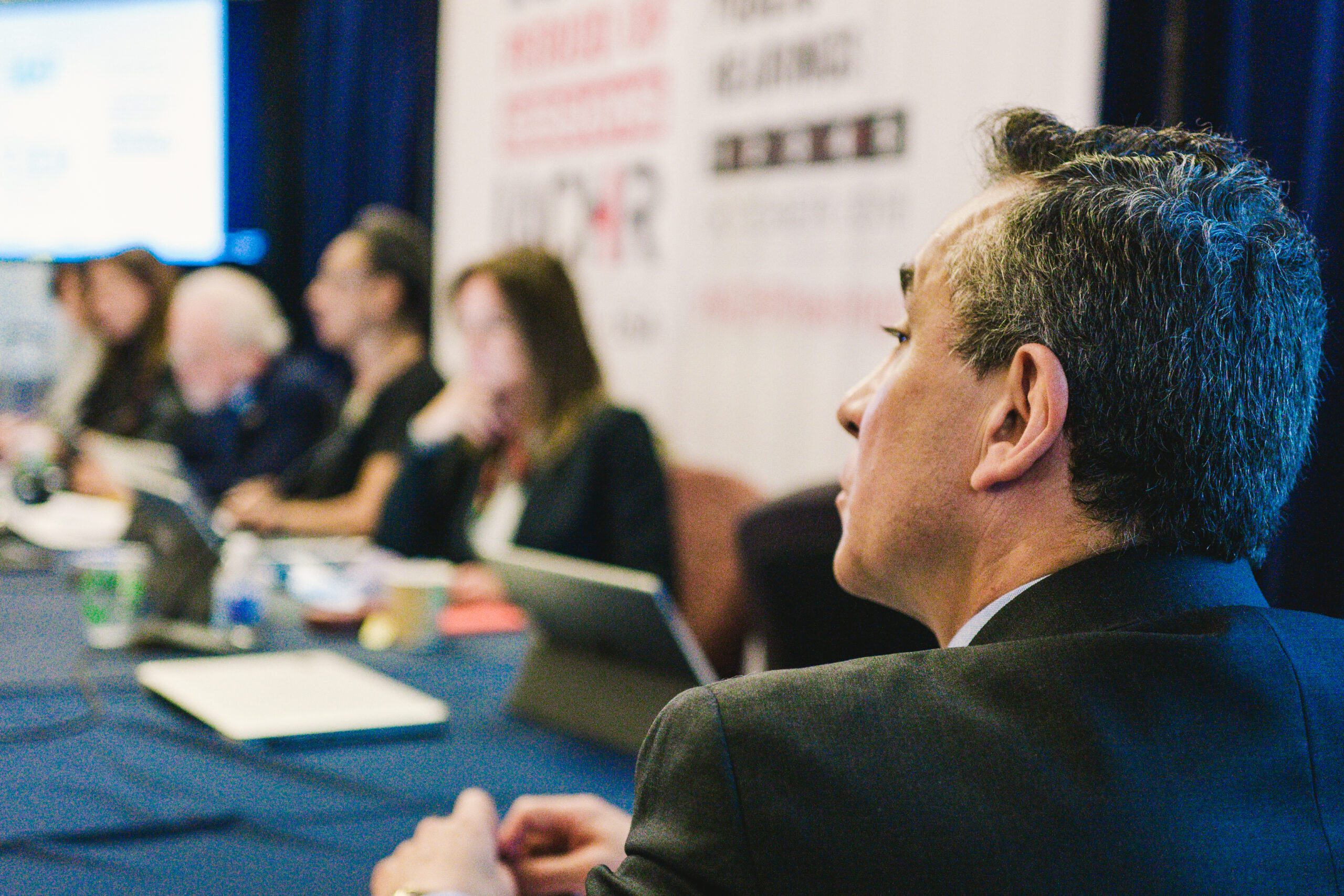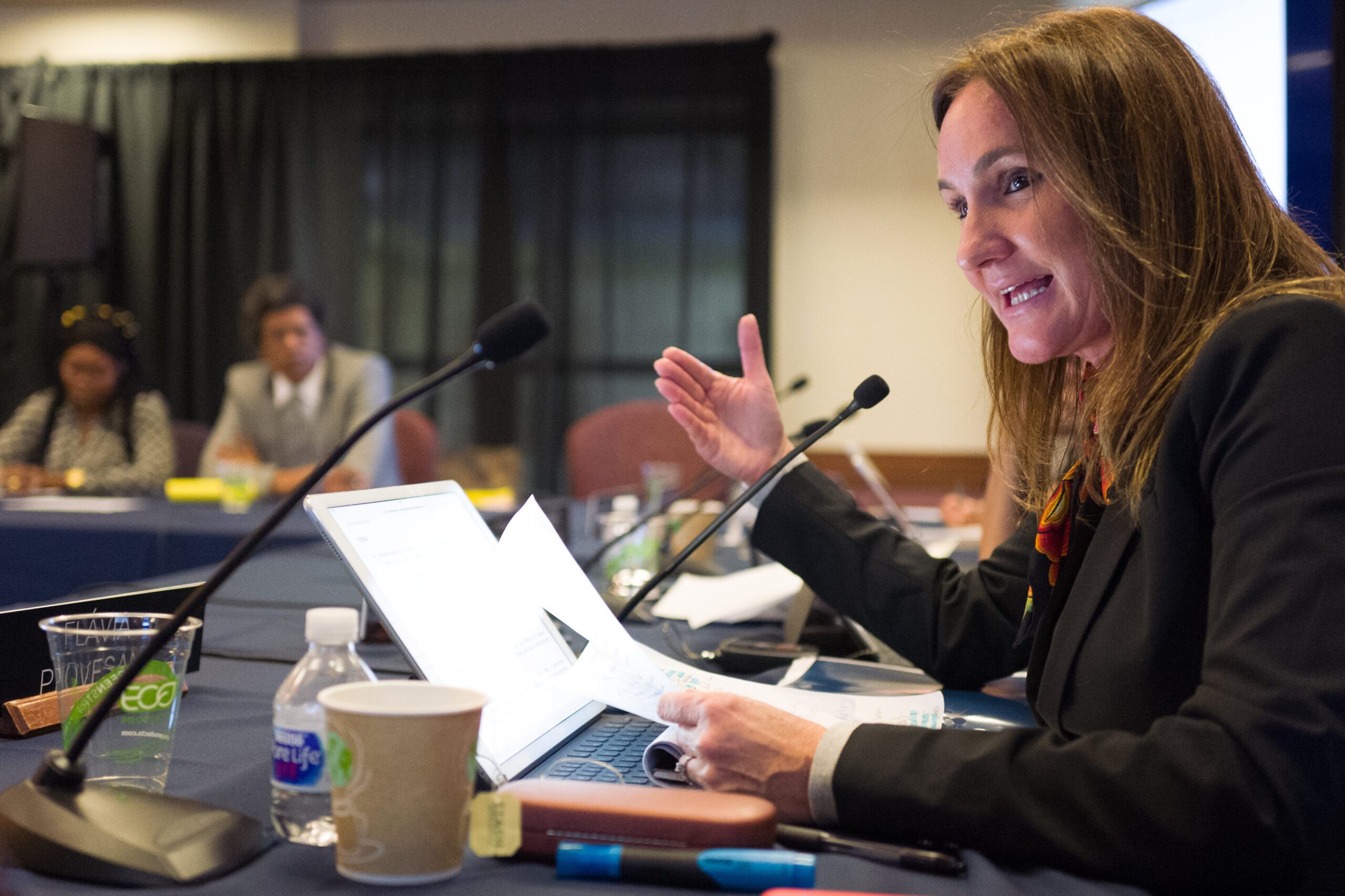COMMUNIQUÉ: We reject discriminatory and arbitrary acts on the part of the Santa Domingo airport authorities committed against Afro-LGBT leader
The International Institute on Race, Equality, and Human Rights (Race & Equality) rejects the discriminatory treatment of an Afro-Peruvian trans leader by airport authorities in Santo Domingo, Dominican Republic.
Yesterday, February 10, human rights activist and Afro transgender leader Belén Zapata of the organization Ashanti Perú was the victim of irregular and discriminatory treatment on the part of airport authorities who arbitrarily withheld the activist’s passport due to her ethnic-racial identity and gender identity.
Belén, who was to participate in the Second Afro-LGBTI Encounter organized by Race & Equality, cleared the regular immigration controls of the Las Américas Airport in Santo Domingo and then proceeded, along with all the other passengers, to customs control in order to leave the airport. However, when she presented the required documentation and began to exit, she was intercepted by an employee of the airport who did not identify himself by name or the entity to which he belonged. From the testimony provided by Belén, it was possible at a glance to determine that he was a police official.
#AfroLGBTI Rechazamos actos arbitrarios hacía lideresa trans y activista de DH de personas #LGBTI #BelénZapata de @ashantiperu quien fue retenida durante más de 40 minutos sin justificación por parte de autoridades de @AerodomRD @TRANSSA_TransRD @cnoa_afro @RedeAfroLGBTMG pic.twitter.com/UI4TvyVoOh
— Race and Equality (@raceandequality) February 12, 2019
During the supposed “regular” protocol, according to what the police indicated to Belén, he withheld her passport for more than 40 minutes while she was forced to wait against a wall near the airport exit. Although the Afro-Peruvian leader repeatedly requested information regarding the process that was being carried out, she never received an answer. Belén’s passport records her legal masculine name; nonetheless, her gender identity is feminine, the reason for which on trips abroad she has suffered through these types of arbitrary airport controls with no legal justification.
“The police spoke to me using the masculine linguistic forms, but I corrected him and told him I was a woman, as he could see,” declared Belén in her denunciation.
During her time waiting at the airport exit, Belén was exposed to between 40 and 60 minutes of treatment that violated her rights to freedom of movement and to be informed regarding the processes being carrying out. This type of violence, although it appears to be minor, is oftentimes the daily reality of trans women in general and even more so that of Afro-trans women in Peru, the Dominican Republic, and in general throughout Latin America. Trans women are victims of the arbitrary exercise [of power] by public authorities who make them out to be criminal subjects and restrict their rights, in this case the right to freedom of movement, with no legal justification.
According to Belén’s account, after the wait, she was taken by the airport employee, along with another group of people, most of whom were Afro-descendants, to a drug-identification scanner. Afterward, she was authorized to leave the airport without being notified at any point of the reasons or reasoning behind said protocol.
The International Institute on Race, Equality, and Human Rights, Ashanti Perú-Red Peruana de Jóvenes Afrodescendientes [Peruvian Network of Afro-descendant Youth], and Trans Siempre Amigas [Trans Always Friends] (TRANSSA) call on Aeropuertos Dominicanos Siglo XXI [Century XXI Dominican Airports] (Aerodom), the Cuerpo Especializado en Seguridad Aeroportuaria y de la Aviación Civil [Specialized Airport Security and Civil Aviation Corps] (CESAC), and the Dirección Nacional de Control de Drogas [National Directorate for Drug Control] (DNCD) with operations in the Las Américas Aiport in Santo Domingo to investigate these incidents, issue a statement about them, publicly ask for forgiveness from the young woman who was affected, and initiate training processes for its employees on respecting Afro-trans persons.

